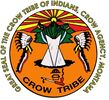If you have possible or confirmed COVID-19:
- Stay in one home and do not visit family members who live elsewhere. The home should have the fewest number of people without high-risk health conditions.
- Stay home and stay away from public places. If you must go out, wear a facemask that covers your nose and mouth to help protect others.
- As much as possible, stay in a specific room and away from other people in your home. Use a separate bathroom, if available.
- Wear a facemask that covers your nose and mouth and keep 6 feet apart when interacting when around others, including other members of your household. Household members should also wear a facemask and maintain as much physical distance as possible.
- Avoid sharing personal items with other people in your household, like dishes, towels, bedding, and other personal items
- Cover your cough and sneezes. Throw away the tissue after use and wash your hands.
- Wash your hands often with soap and water for at least 20 seconds or clean your hands with an alcohol-based hand sanitizer that contains at least 60% alcohol.
- Clean and disinfect all surfaces that are touched often, like counters, tabletops, and doorknobs. Use household cleaning sprays or wipes according to the label instructions.
- Avoid having visitors (anyone who does not live with you) inside your household. If people must-visit, visitors should wear masks and stay outside, if possible, while keeping at least 6 feet distance.
- Do not leave your home to get groceries or supplies. If possible, have a friend or relative drop off supplies to your home. They should not enter the home. You can also reach out to Tribal Incident Command for assistance and resources (679-4056). As a last resort, you may choose one person in the household to make the trip for groceries and supplies. This person should wear a mask and maintain physical distance while out of the home.
- If you have a medical appointment, call the healthcare provider ahead of time and tell them that you have or may have COVID-19.
- Call 911 for medical emergencies. Notify the dispatch personnel that you have or may have COVID-19.
Look for emergency warning signs* for COVID-19. If someone is showing any of these signs, seek emergency medical care immediately: trouble breathing, persistent pain or pressure in the chest, new confusion, inability to wake or stay awake, bluish lips or face.
*This list is not all possible symptoms. Please call your medical provider for any other symptoms that are severe or concerning to you.
Call 911 or call ahead to your local emergency facility: Notify the operator that you are seeking care for someone who has or may have COVID-19.
For further guidance visit: Steps to help prevent the spread of COVID-19 if you are sick
